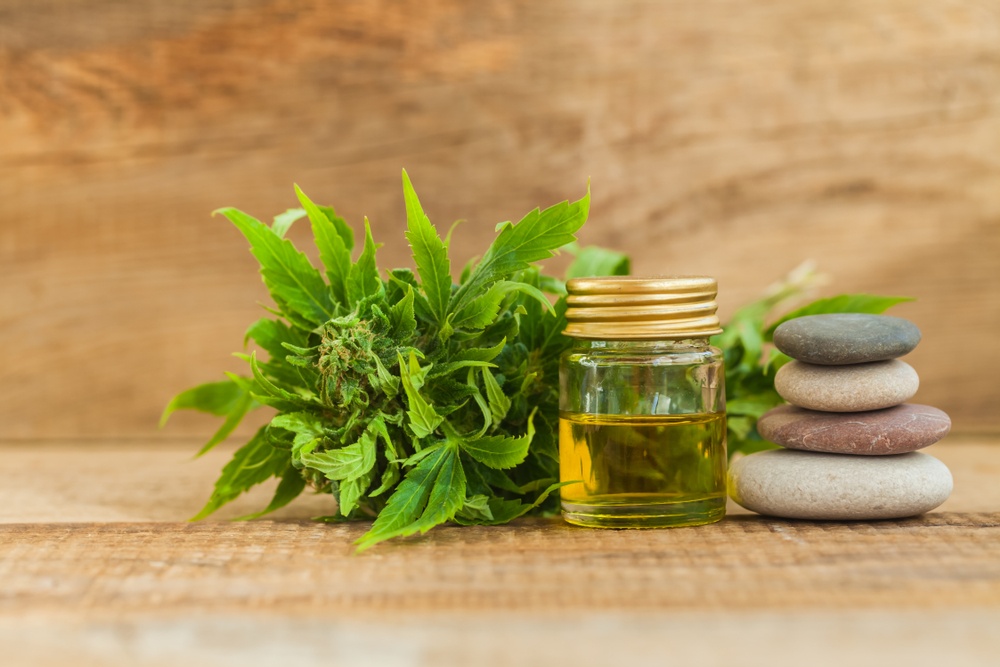



Get new exclusive access to healthcare business reports & breaking news




CBD oil is the in-thing right now.
It’s touted as a natural remedy with a wide range of therapeutic, health and wellness benefits. Thanks to its antipsychotic tendencies, it is also used widely for recreational purposes.
Like any cannabis-related product, there’s a lot of debate around CBD oil, but that hasn’t stopped it from burgeoning to become a $270 million market. And with the Farm Bill 2018 already in force, the best of CBD is yet to come.
Controversial as it might be, the CBD popularity wave has gained increased traction across the country and beyond.
Tons of CBD oil products have found their way into the mainstream market, including CBD vaping cartridges, lip balms, tinctures, and even cosmetics. The pet industry just recently entered the fray, and promises to become one of the biggest consumers of CBD products.
Although extensive research has not been done on the subject matter, some of the recent scientific studies seem to suggest that CBD oil has huge potential in treating or managing an array of chronic ailments, such as epilepsy, depression, migraines, cancer, anxiety, and stress.
But, what is CBD oil? Where does it come from? Is it legal to sell, market or use it? Is it safe to use it, and how do you use it? What’s its market and future look like?
This ultimate guide is dedicated to all things you need to know about CBD oil in 2019, whether you’re a consumer, cannabis farmer, prospective investor, dispenser or anyone in between.
CBD oil is a popular botanical concentrate that is derived from the cannabis or hemp plant and can vary greatly in color, quality, and clarity depending on the producer. This natural oil extract contains significant amounts of a non-psychotic compound called cannabidiol.
CBD, which is short for cannabidiol, belongs to a class of chemical compounds called cannabinoids that are found aplenty in Cannabis sativa or marijuana plant. In fact, CBD is the second most common of the 104 known cannabinoids found in the cannabis plant.
CBD Oil is not to be mistaken for the much popular relative THC (Tetrahydrocannabinol), which is the most prevalent and active compound in the marijuana plant.
As a psychoactive cannabinoid, THC is best known for delivering a “high” sensation often associated with marijuana when smoked, vaped or ingested.
However, unlike its well-known cousin Tetrahydrocannabinol, cannabidiol (CBD) doesn’t have any psychotic effects. In layman terms, CBD oil doesn’t make you feel high or alter your brain chemistry like opioids, weed (marijuana) or other psychoactive medical drugs.
This trait makes CBD oil a much safer, milder and a more appealing option for individuals looking for relief from stress, pain, and much more, creating a massive market opportunity for CBD farmers, businesses, researchers and investors alike.
That being said, it’s worth mentioning right out of the gate that the terms hemp oil and CBD oil do not refer to the same thing, although the two are often used interchangeably.
Hemp oil is typically extracted by crushing and processing hemp (or industrial hemp) seeds. It comprises no CBD or any other cannabinoid for that matter and is generally used as a dietary supplement or for everyday cooking.
On the other hand, CBD oil is extracted from the flower cluster of either marijuana or hemp plant, depending on the processor. It can also be produced from other parts of the plant.
The cannabidiol oil is often extracted by diluting crushed hemp/cannabis sativa material in a carrier oil like hemp seed oil, jojoba oil, flaxseed oil or coconut oil. More specifically, this oil extract contains lots of cannabidiol, terpenes, and traces of other cannabinoids.
Many states have made CBD oil legal for personal, medical and recreational use.
As such, it’s gaining popularity in the health & fitness space, with a number of scientific studies saying it might actually help heal or treat many ailments such as anxiety, depression and chronic pains.
Even still, there’s some grey area when it comes to its efficacy, side effects and health potential.
As we have mentioned above, CBD producers can extract the oil from industrial hemp, cannabis plant or both. But, which option actually delivers the most potent, safest and most effective CBD oil?
There are two popular strains of Cannabis sativa that apply to CBD oil: the marijuana plant and industrial hemp.
Marijuana is the contentious cannabis strain that is usually grown horticulturally (in greenhouses and control farming environment, as opposed to open farm fields). The defining characteristic of this strain is the concentration of the psychoactive compound THC.
On the other hand, industrial hemp (or just hemp plant) is a North American Cannabis strain that is actually an agricultural crop that is grown primarily for hemp seed oil and fiber.
Hemp fiber is a highly sought after material that is used to make biofuel, insulation, pulp paper, food, shoes, bioplastics, clothing, textile, and ropes. (just to name out a few).
CBD oil extracted from industrial hemp is virtually free from any euphoric ingredients. In fact, it MUST contain less than 0.3 percent of THC or even much less depending on the part of the plant that was extracted from and the extraction process itself.
CBD oil churned out from marijuana plant may contain higher levels of THC.
However, the most fundamental difference between marijuana and hemp plants is the level of resin. The latter is a low resin strain, while the former contains a much higher content of resin.
There is also the issue of law. While the Farm Bill of 2018 made CBD oil virtually legal across the country for both medicinal, religious or recreation use, marijuana is still illegal in most states (so far only 11 states have legalized marijuana, including Illinois).
All in all, as a far as the federal government is concerned, the legality of the source of CBD product is gauged in terms of the content of resin.
Take the Controlled Substance Act of 1970, for instance. It states that certain parts of the marijuana plant (read: the sterilized seeds and mature stalks) are not part of the legal definition of marijuana. What that means is that CBD oil that is derived from these two parts are technically legal even if marijuana is illegal in that state.
On the flipside, the definition of marijuana in terms of whether it is legal or not includes sticky resin, leaves, and the flowers. So, there’s a small leeway as far as sourcing CBD oil from Cannabis sativa is concerned, and that’s staying away from high-resin variants.
The good news is that the vast majority of CBD oil sold or marketed in the US is actually sourced as a byproduct or co-product of the industrial hemp processing.
The producers of hemp fiber and seed oil sell the remnant or biomass to CBD extractors. It’s this dual-use approach that makes CBD oil such a smooth business amidst lots of debate around legality.
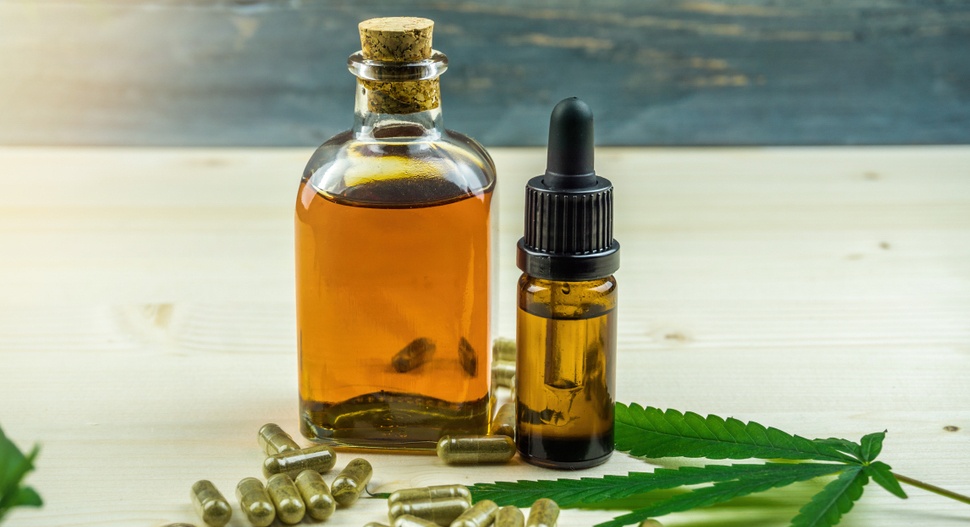

Although the current hype around CBD oil began a few years ago, it actually has a long, colorful and storied history that dates as far back as 6000 BC in Ancient China.
The earliest recorded evidence of cannabis use is found in the first versions of the Pen Ts’ao Ching. These texts describe Sheng Nung, a well-known Chinese Emperor, using tea infused with cannabis at around 2737 BC to treat a series of ailments such as gout, rheumatism, malaria, malaria and memory loss.
According to the Hua Tuo texts, it is evident that cannabis extracts were widely used as anesthetic and blood thinners in the 2nd century BC.
In the Indian subcontinent, cannabis was considered a sacred plant that gods bestowed upon humankind for healing. In fact, Atharvaveda manuscripts describe in great detail how CBD-rich cannabis seeds and flowers were used to concoct tinctures and balms, as well as in Ayurvedic medicine.
Cannabis use dates way back in Europe, too. In AD 77, Pliny the Elder claims that the Romans used cannabis hemp to relief pain and to perform healing arts. Archeologists have also found some cannabis buried in the tombs of Ancient Egyptians and Greeks.
Queen Victoria is also claimed to have used CBD oil to relieve menstrual cramps.
Hemp was so important to 16th century England that King Henry VIII made it mandatory in 1533 for every farmer to cultivate it. During this period, several physicians including Garcia de Orta started studying the use of hemp extract as an antibiotic and appetite stimulant.
Hemp made it to North America in the 1600s and was also cultivated extensively. In fact, the colony of Virginia made its cultivation mandatory, followed by Connecticut and Massachusetts.
By the 18th century, the medicinal properties and uses of hemp had been documented in the Edinburgh New Dispensatory and The New England Dispensatory. However, it wasn’t until 1839 that surgeon William B. O’Shaughnessy started investigating the therapeutic properties of CBD-rich cannabis.
His extensive experiments looked to determine the effects cannabis extracts had on those ailing from hydrophobia, tetanus, cholera, and rheumatic ailments. He unknowingly made way for the discovery of what’s now called cannabinoids.
However, it’s Robert S Cahn, a British chemist, who is often credited for discovering the first cannabinoid – cannabidiol (CBD), which was isolated a couple of years later by US chemist Roger Adams. Adams’ research led way to the discovery of THC.
Unfortunately, the war against cannabis hampered further research. When the Control Substance Act was passed in 1970, cultivation of both hemp and marijuana was banned, making it even hard to research or use CBD extract.
The major comeback of CBD oil and hemp extract is largely due to the legalization of medical marijuana across America. Today, the future of CBD oil is brighter than ever.
Active cannabinoid and Source: The most active ingredient in marijuana is THC, or delta-9 tetrahydrocannabinol, which can account for up to 40 percent of the cannabinoid content.
THC is the compound that is responsible for the feeling of “high” because it causes some changes to your brain chemistry. Otherwise put, marijuana has psychoactive effects on your brain.
THC is not typically found in industrial hemp. In fact, for industrial hemp to be cultivated and grown legally in America, it must contain less than 0.3 percent THC.
CBD, on the other hand, is a non-psychoactive cannabinoid. Yes, both CBD and THC are both cannabinoids, and they are found in the cannabis plant.
In saying so, CBD oil doesn’t have any psychological or mind-altering effects on your brain. It might have some therapeutic and healing properties, but the oil doesn’t make you feel high.
There are essentially two cannabis species popularly cultivated in North America: Cannabis sativa and Cannabis indica. Indica plants are bushier, shorter and have been bred to have more resin concentration. Oftentimes that means indica plants are suitable for THC-rich marijuana.
Sativa plants are more fibrous, taller and have low THC content. They are best suited for the production of industrial hemp, seeds, and CBD.
Chemical Structure: Because they are both cannabinoids, THC and CBD have exact similar chemical structure. Each molecule (the smallest basic unit) of CBD and THC has 2 oxygen atoms, 30 hydrogen atoms, and 21 carbon atoms.
As such, both cannabinoids have a tendency to interact with the cannabinoid receptors in our brain. However, the difference in how they affect your brain owes to the fact that atoms are arranged differently in CBD and THC.
Effects on the Brain: THC binds strongly with CB1 receptors. It is this bond that leads to the sense of euphoria or the feeling of high commonly associated with smoking marijuana.
CBD doesn’t bind with CB1 (cannabidiol 1) receptors in the brain. Even if it does, the bond is so weak that the effect is negligible. As a matter of fact, the presence of CBD in your brain can disintegrate the binding between CB1 and THC, reducing the psychoactive effects of marijuana.
On the other hand, CBD has a higher affinity for CB2 (cannabidiol 2) receptors. That’s why CBD oil can help treat inflammation, reduce stress and help with epilepsy without the psychoactive effects.
Bottom line: marijuana produces a psychotic euphoria (high), while CBD oil doesn’t result in a high.
What the Law Says: The Agriculture Improvement Act of 2018 (aka Farm Bill 2018) which recently came to effect now allows CBD businesses and hemp growers & producers to operate legally. Technically speaking, the law now recognizes hemp (and by association CBD oil) as a non-controlled substance and differentiates it from marijuana.
Even still, the laws around all forms of cannabinoids are still fuzzy and constantly evolving.
On the one hand, Marijuana is classified as a Class I controlled substance. Therefore, marijuana is prohibited under federal law.
On the other hand, CBD oil is not officially scheduled in the Controlled Substance Act (CSA). Also, hemp is not a CSA controlled substance, which means that hemp-derived CBD oil is legal. CBD oil sold for dietary use is controlled under federal law.
Laws affecting marijuana and CBD oil also vary from state to state.
So far, many states in America and the District of Columbia have legalized medical marijuana with high THC concentration. However, patients have to present a prescription from a licensed healthcare professional to be sold marijuana. Of these states, 15 have either reduced or decriminalized marijuana for medical use, but not legalized it.
Health and Medical Benefits: Medical marijuana and CBD oil share several health benefits. They are both used to help with anxiety, pain, and nausea.
THC found in marijuana is also commonly used to treat low appetite, insomnia, glaucoma, muscle spasticity, and more.
CBD oil is also used to help with depression, migraines, IBS, mental disorders, inflammation, and seizures. In fact, just recently, Epidiolex, the first prescription medication rich in CBD received FDA approval for treating rare forms of epilepsy.
Side Effects: Marijuana can have several temporary effects on your mind and body. These include dry mouth, memory loss, slower reaction/response time, eye redness, coordination issues, and increased heartbeat. They are all related to the psychoactive effects of THC.
One of the big draws of CBD oil is that it has virtually no side effects. Cannabidiol is highly tolerated by the brain and other organs even in large concentration. However, studies have concluded that some side effects might be attributed to its interaction with other drugs you might be taking.
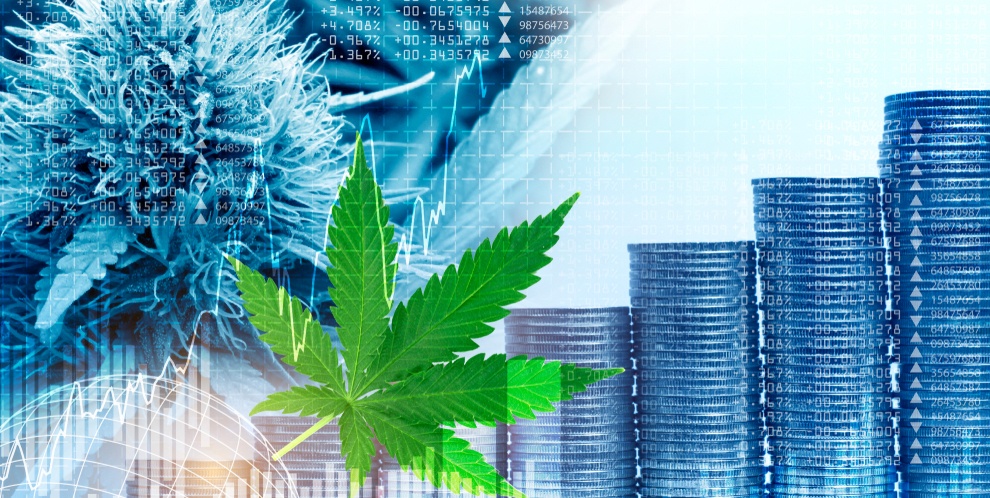

The CBD oil market is growing rapidly, and its potential for further growth is huge. And it is not just in the United States that CBD oil is raising heads.
With Uruguay and Canada leading the way for the rest of the world in terms of legalizing recreational marijuana, it’s just a matter of time before others follow in their footsteps. In the US, Illinois recently became the 11th state to legalize marijuana for adult use. 33 states and Washington have already made it legal for medical purposes.
Widespread legalization of marijuana will certainly fuel the rapid acceptance of CBD oil and related products.
Currently, the cultivation, production, and use of CBD oil are primarily concentrated in Canada, the US and several countries in Europe. In these regions, CBD oil has an established and integrated supply and industry chain, from the hemp and cannabis growers to downstream processors and dispensaries, including a burgeoning list of online stores.
Thanks to this organized chain, a large variety of finished CBD oil products reach the consumer directly and in record time.
However you look at it, CBD oil is poised to become a huge industry. That’s not to say the market is currently small. In 2018, the market size for CBD oil was estimated at $270 million.
Prior to 2015, the CBD oil market was relatively small, with the total market sales thought to be valued at around $202 million. Of this, approximately $90 million came from hemp-derived CBD oil products, while the rest (around $112 million) came from the sale of marijuana-derived CBD oil.
According to Brightfield Group market analysis, the sales of hemp-derived CBD oil products jumped to $170 million, registering slightly lower than double growth. Industry experts anticipate that the CBD market will grow at an incredible CAGR of 39.5 percent to hit $3.86 billion by 2025. And yet another market study claims the industry will be worth 20 billion by 2024. This rapid growth is fueled heavily by increased mainstream acceptance.
There are several other predictions for the market, and all seem to paint CBD oil future in a positive light. According to Karnes, the cannabidiol market will hit the $3-billion mark by 2021, while the Brightfield Group says hemp-CBD market alone with reach $22 billion by 2022.
CBD oil promises to help with a long list of common and not-so-common ailments. Historically, CBD tinctures and balms have been used far and wide to alleviate mainly pain.
Today, there are several people who can or benefiting greatly from CBD products.


Epilepsy is a serious neurological condition that affects over 50 million people around the globe, according to the World Health Organization (WHO). In the US, it is estimated that around 3.4 million people suffer from the condition, which accounts for approximately 1.2 percent of the American population.
Moreover, one in every 26 individuals across the world will suffer or develop epilepsy at least once in their lifetime. The truth of the matter is that more than 70 percent of people with epilepsy can avoid seizures and other epileptic episodes if they are diagnosed and treated in a timely manner.
That’s where CBD oil comes into play. Intensive research has been carried out as a far back as the 1980s to establish if CBD could be used to treat epilepsy. In one early study, Dr. Mechoulam and his research team gave 8 suffers a daily dose of 300mg of CBD.
The results were outstanding. After only 4 months of CBD use, more than 50 percent of the participants stopped having seizures. And the frequency of seizures reduced for all test subjects. This was a major leap for epilepsy treatment, but the negative stigma around CBD and cannabis at the time made it hard for the team to publicize their discovery.
Fast forward… today, CBD oil is literally changing the lives of people suffering from chronic epilepsy. Take Charlotte Figi, a young sufferer from Colorado, for instance. The young lady was born with Dravet Syndrome, a rare and chronic form of epilepsy that affects 1 in every 16,000-21,000 children.
At the age of only 4, Charlotte was experiencing more than 40 seizures per day, or an average of 300 seizures every week. She’d lost her speech function, mobility, and ability to eat. Her parents had tried every possible treatment option traditional medicine could offer. That’s until they discovered CBD oil.
At age 5, Charlotte started taking oil extract from CBD-rich cannabis. The results were almost instant — she stopped experiencing seizures almost instantly!
Today, Charlotte experiences an average of two to three seizures per month, which is a tremendous improvement from over 300 seizures per week before the use of CBD. Her story has set the tone for CBD and cannabis research and has helped dial down the stigma around them.
Even better, the Food and Drugs Administration just approved Epidiolex, an oral solution for epilepsy based on CBD oil. Individuals suffering from other related conditions like Lennox-Gastaut syndrome are also finding this CBD product quite effective.
With opioid epidemic ravaging the nation, CBD oil provides a safer and equally effective solution. CBD has the potential to help with a wide array of chronic pains like back pain, migraines, arthritis, pain in the aftermath of chemotherapy, and so forth.
Stress and anxiety are silent killers in America. Both affect one’s wellness, ability to work, socialize, and be a productive member of society. CBD’s ability to deliver relief for stress without psychoactive effects is remarkable.
While the negative perception towards everything cannabis has made headway in recent years, CBD oil hasn’t been normalized nationwide. CBD still face stiff opposition from people and parties that are not aware of its immense benefits.
With that being said, for CBD oil to change people’s lives and reach its optimum potential, a lot more work has to be done by legislators, CBD marketers, and other stakeholders. While there are definitely barriers to be broken, one thing is for sure: CBD oil has arrived and it’s here to stay.
CBD oil might still have naysayers who argue that its use or sale is illegal and therefore not safe. But that is far-fetched. CBD is federally legal, but the laws at the state and other government levels are still hazy. Which begs the question: is CBD oil actually safe?
The answer is a resounding yes, CBD oil is sufficiently safe for human and pet use. And here are top reasons why:
First off, the fact that the FDA gave Epidiolex the green light for epilepsy treatment speaks volume about the safety and effectiveness of CBD oil.
Epidiolex is a prescription drug from the British firm GW Pharmaceuticals and is now available countrywide for use to treat seizures associated with 2 serious and rare childhood epilepsy forms.
The first is the Dravet syndrome (the kind Charlotte Figi suffered from), which Epidiolex is approved for patients who are older than 2.
The second type is Lennox-Gastaut syndrome that develops during early childhood or infancy. Interestingly, Epidiolex is the first FDA-approved drug to be prescribed to patients for the treatment of Lennox-Gastaut syndrome.
Remember that FDA approves drugs that they deem to be safe for consumers. And because Epidiolex consists of purified CBD oil extract, it is safe to say FDA approval is a clear indication of its high safety standards.
Is CBD oil safe in terms of side effects? This comprehensive review of clinical data and relevant studies seems to think that CBD oil is indeed safe. The review was based on several animal and human studies on the use of CBD for treatment or management of psychotic disorders, cognitive conditions, and epilepsy.
The review confirmed that CBD has a favorable safety profile when compared to existing medication and other treatment options. CBD seems to have zero to negligible side effects.
Most of the reported side effects such as weight changes, diarrhea and tiredness seem to emanate from drug-drug interaction between CBD and the meds the patient took. Even better, when CBD was used as part of the adjunct therapy, it improved the patients’ adherence and compliance with treatment plans.
The review concluded that while CBD has few side effects, more conclusive studies are yet to be conducted and therefore needed.
Unlike opioids and other psychoactive treatments, CBD oil has virtually zero risks of overdosing. You can imbibe 20 or even 100 bottles of the concoction and you’ll not suffer from lasting psychological, mental or physical damage. You’ll probably experience some nausea and diarrhea, but that’ll be just about it.
CBD oil in and of itself is natural and has no direct brain-altering properties. That means that as long as it contains dismal amounts of THC, you’ll have no chance of hurting your health and overall well-being.
Perhaps one of the most obvious reasons people doubt if CBD oil is safe is because there are no clear regulations or regulatory framework around it.
FDA approval of Epidolex is a good start, and several states are putting in place regulations, budgets and other measures to monitor CBD oil market. It’s just a matter of time before CBD products are regulated by the FDA.
CBD, like any other cannabinoid, works by binding to certain bioagents in the brain. These can be neurotransmitters or receptors.
As we’ve learned earlier, THC which produces a euphoric effect on your body attaches strongly to cannabinoid receptors called CB1 receptors. CBD doesn’t bind to CB1 but it does attach to CB2 receptors.
These cannabinoid-attaching receptors are not restricted to the brain, but also found throughout your body. It so happens that most CB1 receptors reside in the brain, which is why THC has a tendency to make you feel “high.”
Biologically-talking, CB1 receptors play a key role in the brain functions like emotions, memory, appetite, thought, mood, pain, movement, and even coordination. When THC attaches to CB1 receptors, these brain-associated functions are affected.
CB2 receptors and CBD molecules are a match made in heaven. As it turns out, most CB2 receptors are present in the immune system. CBD doesn’t bind directly to CB2 receptors but influences them to use more of its available cannabinoids.
Due to its effect on the immune system, CBD can help reduce pain, inflammation and of course improve your ability to fight off germs and infections.
While CBD might not produce a sense of euphoria like THC, it may play a role in making you feel better, fight against stress, anxiety and other symptoms associated with depression. And it does this by encouraging the production of the hormone serotonin.
This is a direct result of attaching or influencing CB2 receptors. That’s because CB2 is part of an important class of receptors called 5-HT2A receptor, which helps increase the level of serotonin in your body.
Serotonin, in turn, is an incredible neurotransmitter. Low serotonin is often associated with sleep issues like insomnia, panic attacks, anxiety, and stress.
When your body releases more serotonin which is a feel-good hormone, your mood will be lifted, stress will go away (or reduced), the pain will decrease, and your immunity will go up. Serotonin also regulates blood pressure, circulation, weight loss, and much more.
While there’s a lot of tongue-wagging around cannabis-related products, there is a burgeoning awareness about the potential medical benefits of CBD oil.
That’s why it has gained momentum in terms of acceptance and popularity in recent years.
There’s a lot of use cases for CBD oil, but we’ll cover the most important ones.


But how does CBD oil help with pain? As mentioned above, the pain-relieving effects of CBD oil can be explained by its ability to interact with cannabinoid receptors in your body.
Our body has a highly specialized system known as the endocannabinoid system (ECS) that is responsible for several different functions, including appetite, sleep, immune response, and pain. By binding with CB2 receptors, CBD helps influence this system and encourage the production of more serotonin and melatonin (more on this below).
As explained earlier, serotonin is a remarkable neurotransmitter. It’s a class of what is called ‘happy-feel” hormones, alongside endorphins and dopamine. It has almost the same effects on your brain as opioids.
Serotonin helps soothe pain centers in the brain and central nervous system. That’s exactly why you tend to feel relaxed, calm and feel a rush of a pain-relieving wave when you take CBD.
There are also several studies that have shown that CBD oil is effective when it comes to dealing with chronic pain, especially those associated with cancers, spinal cord injuries, migraines, arthritis, muscle pain, MS pain and so forth.
In a 2011 study, researchers discovered that CBD helps reduce inflammatory pain (or arthritis pain, to be precise) in lab rats. They further found that it does so by influencing the way pain receptors respond to underlying cause/stimuli.
An extensive review conducted in 2014 concluded that CBD might be a viable treatment option for osteoarthritis (OA) pain.
As there is no existing traditional medication to help control or manage the progression and pain associated with OA, CBD oil may come in especially useful. Another study carried out a couple of years later confirmed that CBD has the potential of relieving inflammation and pain linked to arthritis when applied topically.
If that is not clear enough, there’s another 2017 study on rats which revealed that CBD oil may be much safer and more effective at treating osteoarthritis joint pain than other available treatment options.
Besides animal studies, a number of studies on human subjects have shown that a combo of THC and CBD is a useful treatment for pain associated with sciatic nerve issues, rheumatoid arthritis, and multiple sclerosis.
NIH (National Institute of Health) has also funded or co-sponsored several preclinical studies and trials to help understand the role of CBD-rich cannabis in managing or relieving pain and other symptoms related to back pain, chronic pain, arthritis, etc.


Additionally, The World Health Organization says anxiety disorders are ranked 6th, while depression is the single biggest cause of disability across the globe.
To add insult to injury, pharma meds used to treat depression and anxiety are usually riddled with side effects, including insomnia, aggression, drowsiness, nausea, reduced sex drive, and headaches that won’t quit.
Some opioid treatment options also lead to serious substance abuse and addiction. That’s why more and more people are turning to CBD products.
CBD’s ability to increase the levels of serotonin in the body can help reduce symptoms of depression and keep anxiety at bay. And there are several scientific studies that seem to concur.
For example, in a 2014 study, de Mello Schier AR and his team at the Federal University of Rio de Janeiro found that CBD has significant anxiolytic (anti-anxiety) and antidepressant-like properties.
Earlier, in a 2011 study, his counterparts from the Department of Neurosciences and Behavior, Division of Psychiatry, University of São Paulo had used both human and animals models to demonstrate cannabidiol oil’s effectiveness in treating social anxiety disorder.
In this comprehensive study, 24 individuals with social anxiety disorder were given treatment solution containing around 600mg of cannabidiol before going to give a public speech. Some of them didn’t receive CBD.
Those who took CBD were less anxious and experienced much fewer speech issues or cognitive impairment when giving their speeches than those who didn’t.
In a 2016 study, Scott Shannon and his fellow researchers at the University of Colorado School of Medicine in Fort Collins demonstrated that CBD oil can be safely and effectively used to treat anxiety and sleep disorders in children with PTSD.
Bottom line: CBD oil has been found through several studies to help reduce depression and anxiety disorders in both animals and humans. Its antidepressant and anti-anxiety qualities are linked to the cannabinoids’ ability to influence receptors for serotonin, a hormone that regulates social behavior, mood and one’s general state of happiness.
Tobacco smoking can cause insurmountable damage to the smoker’s health and well-being. It’s a risk factor for heart disease, bronchitis, glaucoma, infertility, sexual dysfunction, diabetes, hypertension, and several cancers.
The good news is that 68 percent of smokers in the US want to quite. But smoking cessation is not an easy walk in the park. Of course, the last thing you want is to quit cold turkey.
CBD oil has shown great potential to lessen the level of reward smoker’s brain gets from smoking tobacco, and therefore loosening their dependency on them. It acts like a nicotine patch but without all the side effects and withdrawal symptoms.
A 2013 study found that CBD treatment can indeed reduce one’s dependence on nicotine or tobacco smoking. In this study, 12 smokers were issued with inhalers infused with CBD oil, while the other 12 participants were given non-CBD inhalers.
Those who used CBD-rich inhalers reduced the number of cigarettes smoked per day by an average of 40 percent. There was no difference in those that didn’t use CBD.
In another comprehensive 2015 study, researchers discovered that CBD has multi-prong benefits that can help smokers quit smoking, including reducing social anxiety disorders, withdrawal syndrome, and other metrics related to addiction.
Moreso, CBD helps with depression and relaxes the nerves, which is always a big plus for anyone attempting to cease smoking.
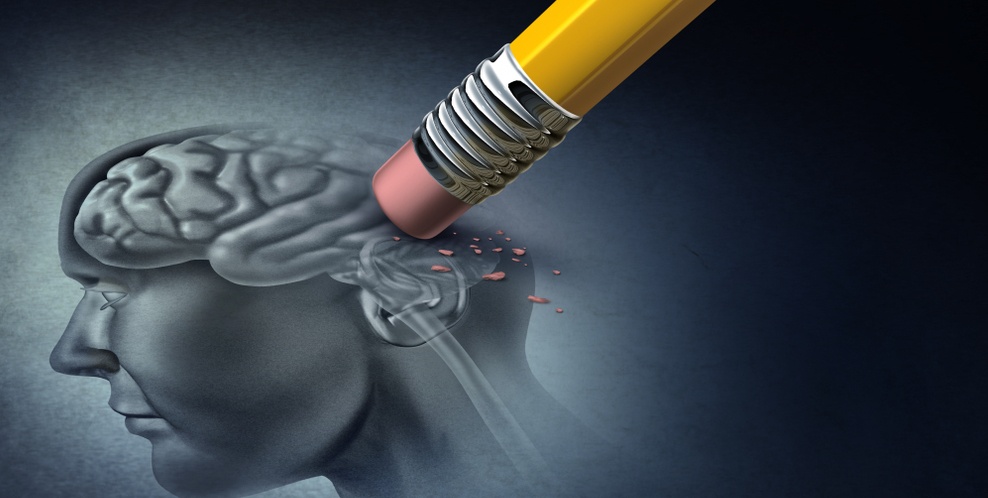

There is no known cure for Alzheimer’s Disease.
The good news is that CBD oil has shown a great deal of potential to benefit Alzheimer’s sufferers. According to CBD Kyro, long-term use of CBD oil is much tolerable and can help treat underlying symptoms like aggression and agitation, as well as root causes.
In one study carried out in 2014, mice genetically predisposed to the disease received CBD treatment every day for 8 months. The researchers were excited to discover that CBD helped the mice by reducing the effects of Alzheimer’s disease. Their ability to recognize faces increased, social withdrawals reduced and overall cognitive deficits decreased.
Several other test-tube and animal model studies have proved that CBD oil has great potential to reduce inflammation and thus help prevent cognitive degeneration often linked to Alzheimer’s disease.
The scientists believe that CBD’s action on receptors in the brain and immune system is responsible for reducing inflammation in the nerves, lowering cholesterol levels, and increased retention of important nutrients.
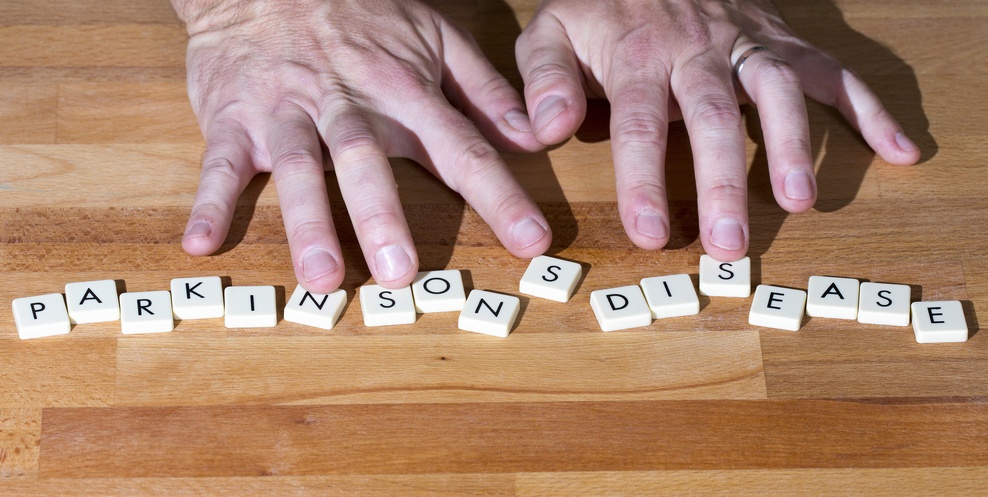

Like Alzheimer’s Disease, there’s no cure for PD, but there’s a growing list of medications and options that can be used to manage the symptoms and improve quality of life. CBD oil has joined that list.
Unlike most meds meant for PD management, however, CBD oil doesn’t come with serious side effects like ankle swelling, insomnia, liver damage, urinary problems, constipation, diarrhea, skin blotching, and nausea.
CBD has also been studied extensively for its potential benefits in treating PD.
For instance, two 2014 studies revealed that long-term and consistent treatment with CBD oil enhanced sleep quality and spruced up the quality of life for individuals living with Parkinson’s Disease.
In another 2014 study, 22 people with Parkinson’s Disease who received CBD-rich cannabis saw significant improvement in pain, tremors, sleep, and mobility. These impressive benefits were noticed within just 30 minutes of using cannabis.
In yet another groundbreaking study published in 2010, scientists discovered that CBD and other cannabinoids can help with inflammation, which is often associated with PD.
As a non-psychoactive cannabinoid, CBD might help in several ways to manage or reduce PD symptoms. Of course, the research into the potential benefits of CBD oil for Parkinson’s Disease is ongoing.


Its symptoms may include speech impairment, blurred vision, muscular miscoordination, tremors, jerking, weakness, and persistent fatigue and numbness, all of which can lead to a serious disability.
There are several FDA-approved therapies available to mitigate symptoms of MS, but most of them come with some side effects. Good thing, a number of recent studies on the use of CBD have shown promising outcomes.
For example, 5 extensive reviews discussed at the Consortium of MS Centers in Tennessee lead to the conclusion that there’s enough evidence CBD can be a viable treatment option for involuntary muscle contraction, tremors, and pain associated with MS.
Another study published in 2014 found that Sativex, a CBD-rich oral spray is a not only effective but also a safe way to ameliorate muscle spasticity in multiple sclerosis patients. Of the 276 participants, 75 percent experienced a reduction in muscle spasticity after using Sativex. What’s more, their spasms had developed resistance to conventional drugs.
A 2012 study also found that Nabiximols containing CBD-rich cannabis can help treat spasticity, urinary, and pain linked to MS.
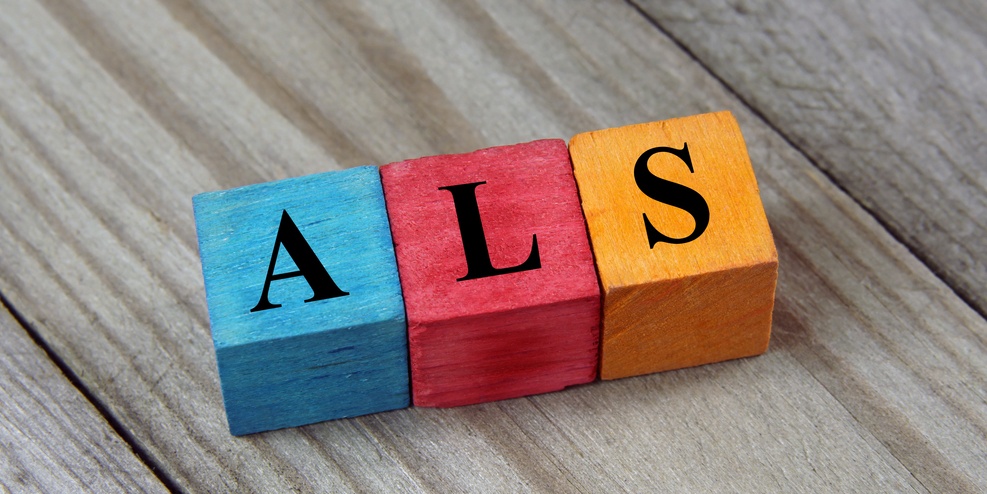

About 30,000 Americans have ALS, with global sufferers numbering around 450,000. Currently, there’s no effective treatment of ALS, with the focus of research now on CBD and other cannabinoids like THC.
In a study published in 2009, Chandrasekaran Raman and his team at the Forbes Norris MDA/ALS Research discovered that use of CBD oil helped delay the progression of ALS in mice. Specifically, muscle weakening reduced by half when the mice were treated with cannabidiol.
This hinges on one study by a team from the Neurological Clinics, Department of Neurosciences at the University of Rome, which found the link between ALS and problems in the endocannabinoid system (ECS).


Common risk factors and causes include over secretion of sebum, inflammation, bacterial infection and genetics. CBD oil has shown promising results when it comes to treating and managing acne.
In an extensive 2014 study published in the Journal of Clinical Investigation, Attila Oláh and his team showed that CBD oil can help prevent over-activity in glands responsible for the production of sebum. This way, the oil prevents acne flare-ups, while keeping the skin sufficiently moist.
Another study published in same year found that CBD helps prevent acne-activating agents (such as cytokines), induced anti-inflammatory reactions, and inhibited sebaceous glands from producing too much sebum.
Scientists believe that CBD is a safe and effective acne treatment because of its ability to not only dial down sebum secretion, but also its anti-inflammatory qualities. Of course, users are recommended to seek advice from their doctors or dermatologists before using CBD regimens.


Cancer treatments and therapies like chemotherapy have devastating side effects and they aren’t exactly effective. Which begs the question: is CBD oil the answer?
This 2012 study says CBD can help fight cancer directly. The study seems to conclude that CBD has anti-progressive, anti-migratory, anti-metastatic and anti-invasive properties against cancer.
While that might be refutable, most research studies admit that, at a minimum, CBD helps with managing some cancer-related symptoms.
For example, one study published in 2010 investigated the effects of CBD-rich cannabis on 177 cancer patients. The vast majority of these people couldn’t get pain relief from conventional medication.
Those who received CBD-rich treatment experienced a notable decrease in cancer-related pain, nausea and sleep problems. In fact, these benefits were greater in CBD recipients than those who were treated with an extract containing only THC.
Several test-tube studies and those done on animal subjects have also revealed that CBD might have anti-cancer qualities after all. For instance, a 2011 research study demonstrated that high CBD extract can trigger the death of human breast cancer cells.
In another study done in 2007, scientists found out that CBD can reduce the spreading and progression of aggressive breast cancer cells in mice, by a huge margin. While these studies are indeed groundbreaking, scientists are yet to replicate these results in the human body.
Some animal and human studies have also shown that CBD can help decrease chemotherapy side effects like vomiting and nausea.
In a study published in the British Journal of Clinical Pharmacology, 16 cancer patients going through chemo used an oral spray ladened with CBD-rich cannabis an average of 4.8 times per day. 71.4 percent of patients who used CBD spray said they experienced a reduction in vomiting and nausea.
Bottom line: An array of animal, test-tube and human studies have shown that CBD has potential anti-cancer properties.
While it can help reduce symptoms and conditions associated to cancer and cancer treatment, further research is required to review CBD’s safety and effectiveness.
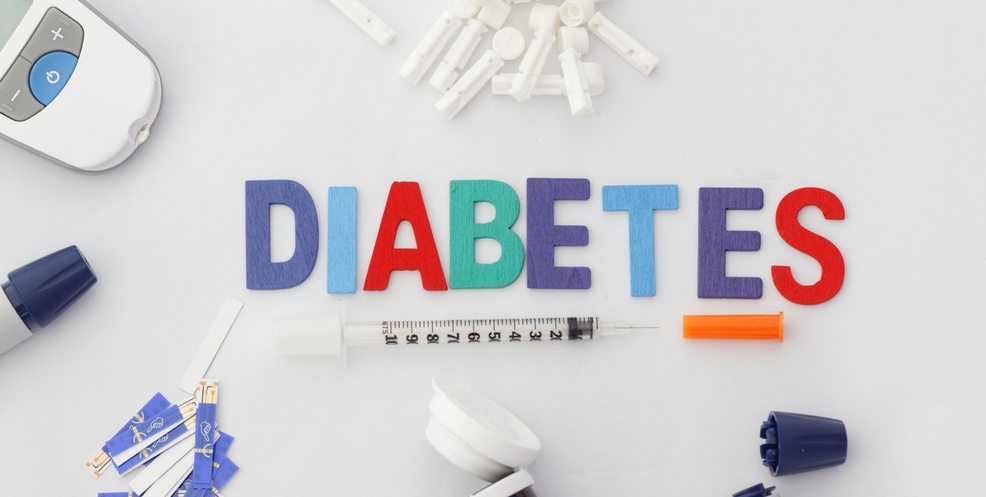

If you do the math, you’ll find out that more than one-third of Americans will have to face diabetes at some point. In fact, this chronic condition is the seventh most lethal disease when it comes to killing Americans.
Of all the forms of diabetes, type 2 is responsible for between 90 and 95 percent of all diagnosed cases – most of the rest goes to type 1 diabetes.
More and more people are opting for CBD oil as a treatment option for their condition. Some use it to manage their precarious condition. And there’s a growing batch of studies that show that CBD is an effective choice for treating type 2 diabetes.
One interesting study published in 2013 in the American Journal of Medicine drew several conclusion about CBD use for diabetes treatment. It concluded that CBD users have high levels of HDL (the good cholesterol) despite eating a regular diet. More importantly, the study confirmed that CBD might help regulate blood sugar, which is crucial to managing type 2 diabetes.
More recent research conducted in 2016 discovered that mice predisposed to diabetes developed type 1 diabetes much later than expected, showed marginally reduced signs oxidation (inflammation) and had significantly increased the production of insulin in the pancreas when they were treated with CBD oil.
In an earlier study, researchers found that CBD treatment can prevent 56 percent of diabetic mice from developing diabetes. As if that wasn’t incredible enough, the study uncovered that CBD also helped significantly reduce inflammation in diabetic mice.
Bottom line: While these studies have shown that CBD might be an effective treatment route for diabetes, more research is needed to be carried out in humans.


Lack of enough sleep or suffering from insomnia can lead to a devastating impact on your mental, physical and emotional well-being. In fact, several studies have shown that people who suffer from insomnia tend to be obese, are physically inactive and often turn to smoke.
Insomnia can affect your immune system, can lead to depression, and can become a risk factor for heart disease, diabetes, and other chronic conditions.
CBD oil and can help, and several animals, human and in-vitro studies agree. CBD oil action on serotonin in the brain helps reduce depression, anxiety, chronic pain, inflammation, seizures, and digestion problem, all of which are known causes of insomnia.
Serotonin is a powerful hormone that returns your parasympathetic centers in your brain to its relaxed and calm state. This way, you can go to nod land without any trouble.
CBD oil also helps encourage the production of melatonin, a well-known hormone that aids sleep. It helps you not only fall asleep faster but also sleep longer and get a restful night.
In a 2013 study, researchers treated mice with CBD and monitored their sleep factors. They found out that mice who were treated with CBD experienced increased sleep latency when exposed to light. It also increases total sleep duration.
Another study published in 2014 looked to establish if cannabidiol could help treat obstructive sleep apnea, which affects close to 100 million people worldwide. The findings show that CBD induced serotonin production, which help reduce sleep apnea in mice.


Current treatment options for lupus are unreliable and most of them lead to opioid addiction. A growing list of research initiatives seems to suggest that CBD oil can be an effective and safe treatment for inflammation and pain related to lupus.
There are also several studies and anecdotal evidence that CBD oil helps manage lupus by acting on T-cells. For example, in a study published in 2018 in the Cellular Immunology, scientists found that CBD changes the way T-cells function when given to someone with a spinal cord injury.
Lupus is often associated with chronic pain from nerve damage, and several studies show that cannabidiol oil can help relieve a wide range of pains. This type of pain is often linked to rheumatoid arthritis, HIV, migraines, spinal cord injury, and much more.


It is typically symptomized by bleeding from the rectum, diarrhea, abdominal cramps, persistent constipation, and frequent need to move bowels. If not treated early, it can lead to extreme weight loss, abnormal menstruation cycle, fatigue, grave loss of appetite and excessive sweating at night.
Crohn’s & Colitis Foundation (CCF), more than 780,000 people in the US have Crohn’s disease. Risk factors include environmental, genetics, stress and poor diet. It is quite common in young adults and adolescents.
Immune modifiers, antibiotics, and sometimes steroids are often prescribed to help fend off inflammation and manage the condition. CBD oil is touted as the perfect candidate for alleviating pain, stress and other symptoms and perceived causatives of Crohn’s disease.
In a first of its kind study that was presented at the United European Gastroenterology conference, scientists found that CBD-rich cannabis can help reduce clinical remission for Crohn’s Disease sufferers by 50 percent after 8 weeks of use.
Moreover, 65 percent of participants said CBD helped them reduce IBD symptoms as well as improve their quality of life. As such, researchers have demonstrated that CBD oil can deliver measurable results and improvements in controlling Crohn’s disease symptoms.
According to lead researcher, Dr. Timna Naftali, CBD oil can play a key role in slowing the movement of food in the gut, increasing appetite, reducing pain, preventing diarrhea, and reducing intestinal secretion.
While the study has not been officially published, the findings are remarkable. It will become the base study for further research from now henceforth.
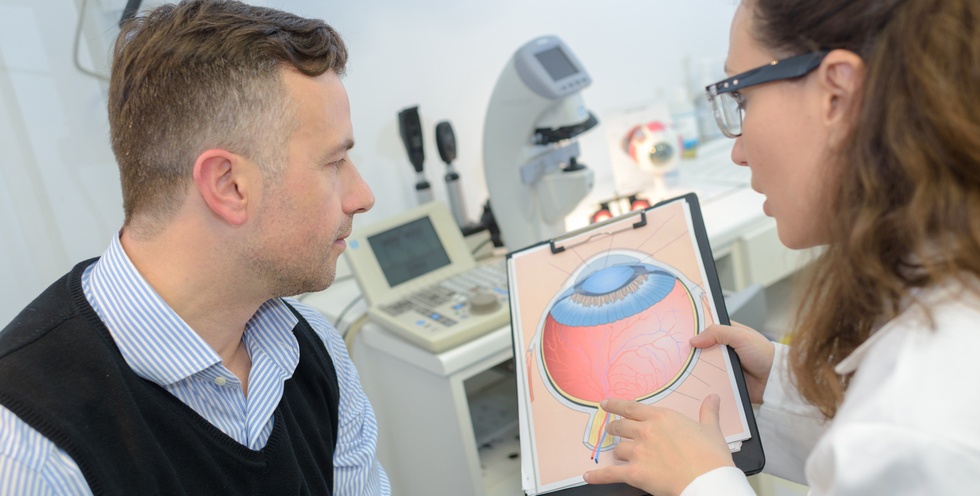

Glaucoma is the 2nd leading cause of lost eyesight across the world, only trailing cataract. The most unfortunate part is that about half of people with glaucoma don’t know that they have it.
It so happens that CBD oil can help you prevent glaucoma from stealing your eyesight. And most studies that have been carried out over the years are in agreement with this statement.
For instance, milestone research conducted in 1971 investigated the effect of CBD on eye pressure in young people. Increased eye pressure is often one of the most apparent symptoms of glaucoma which have adverse damage to the optic nerve, causing the subject to lose eyesight with time.
According to the study, scientists found out subjects who used CBD experienced a decrease in eye pressure of around 30 percent. As exciting as that may seem, that’s just but the tip of the iceberg of how CBD can help tackle glaucoma.
In another study published in 1978, it was found that the use of CBD-rich cannabis can cause significant reduction in intraocular (optic nerve) pressure both in human subjects and dogs with glaucoma.
In another comprehensive study reviewing CBD and glaucoma studies conducted between 1997 and 2008, the authors concluded that cannabidiol helps reduce not only eye pressure but also toxicity in the retina of an eye. Both conditions can worse glaucoma if they are not tamed.
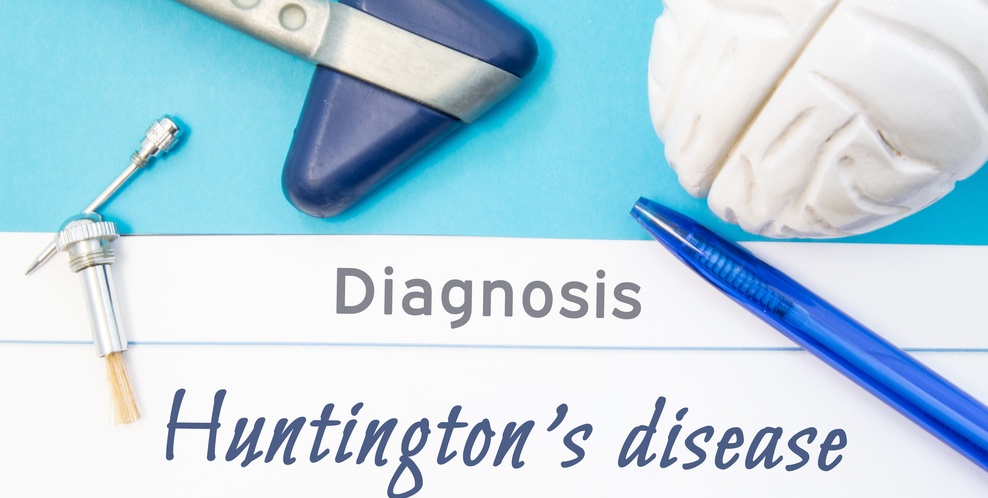

If not controlled early enough, HD will render the person unable to speak, walk or reason with time. Only 1 percent of Americans are at the risk of developing Huntington’s disease. CBD oil is chock-full of health and medical benefits that can prove useful in the fight against HD.
A 2011 study showed that the use of CBD can help reduce the progression of HD. And results from this clinical trial show positive outcomes. The patients who used CBD extract experienced less muscle spasticity, eye movements were sharper and saw lower jerking movements.


The good news is that myriads of research and groundbreaking studies have linked CBD oil with numerous health benefits for your ticker, blood flow and circulation system. Perhaps the most crucial benefit is its ability to regulate blood sugar and pressure.
A 2014 high blood pressure review study established the link between hypertension and issues with metabolism, heart attack and stroke. Good thing, there is a multitude of studies that seem to indicate that CBD oil may be a safe, natural and effective solution for hypertension (high blood pressure).
Take this study that was published in 2017, for instance. 10 healthy male participants were given either a placebo or 600mg of CBD. The researchers discovered that CBD helps reduce resting (what’s called basal) blood pressure. Scientists concluded that the anti-anxiety and anti-stress properties of cannabidiol were responsible for its ability to bring down blood pressure.
Furthermore, many test-tube and animal subject studies have show that CBD can indeed help not only prevent death of cardiovascular cells but also reduce inflammation which is often associated with heart disease.
For example, in one 2010 study, researchers found that using CBD to treat diabetic mice with cardiovascular disease help reduce oxidative stress (which is linked to inflammation) and prevent heart failure. They believe that the powerful antioxidant and anti-stress properties lead to its ability to prevent heart damage.
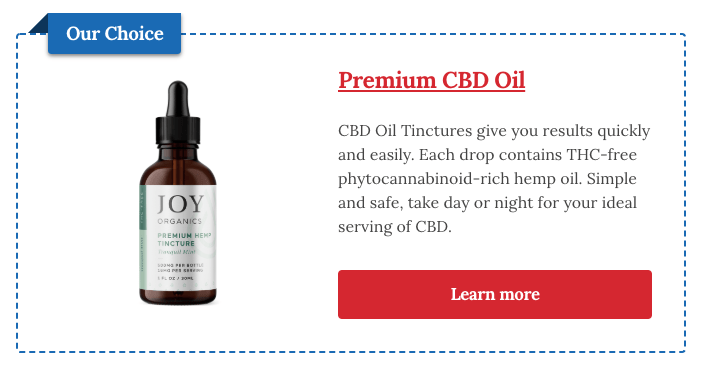









Traditionally, muscles relaxants like Valium are used as quick fixes for muscle tension, soreness, pain, and spasm. But remember most of these muscle medications are either riddled with side effects, ineffective or lead to substance abuse and addiction.
There are numerous research and studies that depict CBD as a great muscle relaxant.
For instance, a study published in Neurotherapeutics in 2015 noticed that CBD has significant potential as a treatment option for muscle spasticity, tension, rigidity and other conditions that result from poor workouts, overwork or chronic stress.
In another 2015 study, 47 individuals with muscle spasm as a result of Multiple Sclerosis experienced a significant reduction in muscle rigidity, increased walking and reduced pain when treated with Sativex, an oral treatment that is laced with CBD. It also led to great improvement in sleep quality and less pain during movement.
Bottom line: Muscle spasm can be not only painful but can also impact on your quality of life. CBD-rich cannabis extract has been found to be effective when it comes to decreasing this pain linked to muscles spasms, rheumatoid arthritis, and MS.


Going through the motions of PTSD can be quite unsettling. That’s why more and more war veterans and other PTSD sufferers are turning to cannabinoids like CBD for relief and to get by.
Some studies have found that CBD may be safe and effective in providing relief from post-traumatic stress and managing PTSD in general.
By acting on or influencing CB2 receptors and inducing production of serotonin, CBD plays a key role in helping people suffering from PTSD by preventing them from retrieving their nightmares and traumatic memories.
CBD also helps PTSD sufferers stay on top of their mental health by reducing anxiety, stress, depression and other factors that are essential for emotional well-being. This is especially true for combat veterans who want to forget painful memories.
In one study carried out by the researchers at NYU Langone Medical Center, it was revealed that combat veterans suffering from PTSD have extremely low levels of anandamide, a neurotransmitter that has an high affinity for CB2 receptors. What that means is that these patients can use CBD oil (preferably in conjunction with cannabis) to increase their serotonin and anandamide levels.
Numerous other studies have also demonstrated how CBD treatment helps reduce memory of fear, stress circulation, conditioned fear, and even reversing development of PTSD.


Obesity is preventable, but beating it isn’t always a picnic.
Enter CBD oil, an extract which can help obese people burn unwanted fat, lose weight and keep it off. There are many scientific studies that demonstrate how CBD helps people suffering from obesity lose weight:
Fat conversion: Some studies suggest that CBD helps convert bad (white) fat into favorable (brown) fat that is easy for the body to zap. Moreover, white fat is often associated with increased risk of chronic ailments like diabetes and heart disease.
In a study published in 2016, scientists zeroed in on the possibility that CBD plays a crucial role in how our body deals with fat. They found that CBD does this in two ways: (1) it helps the creation of easily metabolized brown fat cells from white ones, and (2) it revs up metabolism making it burn more fat.
Curbs raging appetite: Most obese people have an uncontrolled appetite which forces them to go an eating spree or binging. CB1’s antagonizing effects of CBD help obese people curb their big appetites and therefore cut weight.
In other words, CBD molecules help block off CB1 receptors, which are responsible for increased appetite, from being activated. A 2012 study showed that CBD exposure to rates helped suppress their appetite.
Controlling metabolic disorders: a top-down review published in the Cannabis and Cannabinoid Research journal showcases and analyzes the bulk of existing studies that surround the link between metabolic disorders and CBD.


Over 25 million people in the US have asthma, as per the National Heart, Lung, and Blood Institute. Most of the asthma sufferers are looking for safer, more natural alternatives to inhalers. And that’s where CBD oil comes into the picture.
A burgeoning body of studies and research is focusing on CBD’s effects on asthma.
A 2012 study on the effects of CBD on asthma found that it reduces inflammation resulting from allergic reactions, reduces pain associated with asthma, and heal the nerves affected by inflammation.
These findings are in line with a 2011 study that showed that allergen exposure leads to increased in neurotransmitters like anandamide which can be blocked off by CBD.


These are rare brain or mental health conditions that are typified by extreme mood swings or changes, which include high, manic episodes and low, depressive episodes. These episodes can last for many days or weeks on end.
Mood swings resulting from bipolar disorders can be precarious and extreme. Such a person may experience symptoms of psychosis-like delusions and hallucinations. A growing volume of studies shows that CBD can also help with bipolar disorders.
CBD oil helps improve mood and reduce mental impairment: in a 2016 study, researchers found that bipolar people experienced fewer mental impairments and had a better mood when they used CBD oil. Although most naysayers say cannabinoids can affect memory and thinking, this study seems to show otherwise.
CBD oil promotes a positive outlook: A study published in 2015 showed that CBD use in persons diagnosed with a bipolar condition helped improve not only their mood but also led them to have a more optimistic outlook on life. In other words, they tend to have a better day when they are on treatment with CBD-rich cannabis.
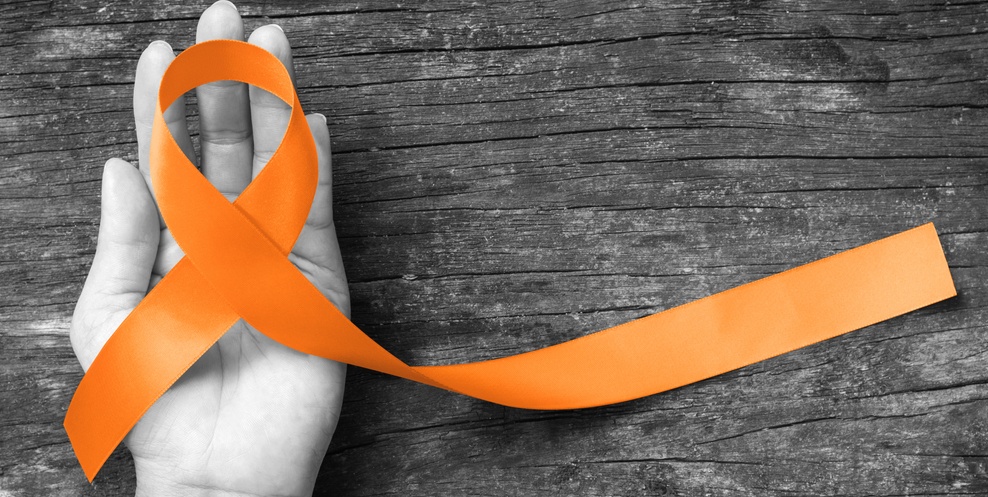

More than 60,000 new cases of leukemia are discovered in the US every year, with around 23,000 succumbing to cancer. Thankfully, researchers are now finding out that CBD oil can improve the chances of survival.
In a study published in 2005, Catherine Lombard and her team at the Department of Microbiology and Immunology, Medical College of Virginia showed that leukemia cells can be targeted using CBD via cannabinoid receptors. This study found that CBD can help reduce activators and progression of the disease.
Incredible results from milestone studies and research reviews portray CBD oil as a multi-function supplement and drug that can help with a vast majority of conditions affecting human kinds. However, its use is not without risks and side effects.
CBD oil comes with mild side effects, but most of them are not tied to the interaction of the compound with other medication in the body. According to CBDKyro, the most common side effects and risk of CBD oil include tiredness, diarrhea, change in appetite, tendency to get irritable, nausea and fatigue.
According to Dr. Peter Grinspoon at Harvard Medical School, CBD can increase or influence the level of meds in your blood, just like grapefruit does. The biggest side effects, however, come from unwanted elements that might have entered the extract during processing or from carrier oils.
CBD is extracted from hemp or cannabis materials like powder, concentrate or oil of varying colors, densities and concentrations.
However, it often comes in many different forms.
This makes it easy for consumers to use CBD in the form that best suits their needs. Here are the most readily available forms of CBD, and how to properly use them, including recommended frequency and dosage.
CBD pills and capsules are the preferred method for systematic treatment options for conditions like digestive problems, bipolar disorder, and epileptic seizures. Epidiolex, the recently FDA-approved drug is a classic example of this.
If you are looking for quick action or relief from CBD, however, capsules and pills aren’t your best shot. According to the FDA, a person should take a 25mg CBD capsule like Epidolex per day.
CBD tinctures and oils are available in liquid form. They include CBD and carrier oils like coconut or hemp seed oil. They are ideal for people who want quick relief or are not fond of capsules/pills.
There’s no exact or strict dosage for CBD oil and tincture because you don’t run a risk of overdosing. However, the recommended dosage is 20 mg for someone who weighs 240 pounds and should be taken twice daily.
Edibles are usually baked foods and gummies incorporated with CBD. They are perfect for someone looking for portability, affordability and the utmost discretion. You just eat or chew them, and voila — CBD is in your system!
Tasty as they might, the dosage is always a matter of guesswork. Most edibles contain anything from 5mg to 100mg of CBD per part. If you are looking for strong effects, go for 31mg to 45mg of CBD per 230 pounds of weight.
These are vape carts which are filled with CBD oil tincture or concentrate. The producer usually has everything labeled out. As such, this method is for people who want super instant effects. They also make it easy for you to know how much CBD is getting into your body.
As an accessory for your vape pen or e-cig, the cartridge comes in standard 30ml bottles that you need to refill at 1.5ml. The amount of CBD ranges from 200mg to 1500mg per bottle.
CBD-rich topicals are often used to treat joint pains, muscle spasms, and other external conditions. They can also be used to deal with acne and other skin problems.
When it comes to dosage, topicals can be quite tricky. It often ranges in concentration from 250mg to 1500mg per bottle. To work out the dosage, consider your weight, needs (how strong you want the effects to be), concentration and your tolerance.
Farm Bill 2018 declassified CBD and hemp-extracted products. So, technically, CBD is federally legal if it was derived from industrial hemp. That means the plant should contain no more than 0.3 percent of THC.
Some states like Illinois have also legalized CBD oil at the state level.
In fact, CBD products are legal in every state that has legalized cannabis for either medical or adult use. However, if it is only legal just for medical purposes, you must get a license to dispense them, and a prescription from a licensed professional to be served by dispensaries.
On the other hand, don’t forget that the Food and Drug Administration has not approved nor does it regulate CBD oil for whatever purpose. Nonetheless, if the CBD oil is meant to treat a medical condition, it falls under FDA jurisdiction, and therefore not federally legal.
While CBD oil is legal just about anywhere in the country, the exact legal status is still a little hazy.
Even with the Farm Bill already in effect, some state machinery and police officers are yet to catch up. That’s why there are several cases of people running into trouble with law enforcement when growing, selling, transporting, marketing or using CBD products.
For example, truck drivers carrying CBD or hemp products from Kentucky and Oregon through Idaho and Oklahoma are occasionally arrested by local and state police on charges of drug trafficking.
CBD arrests are also quite rampant in Florida and Texas, where its possession is still regarded as a felony.
A good example is a 72-year-old grandmother who was forced to spend two nights in jail for having been found with CBD oil at the DFW Airport. Another 69-year-old grandmother was arrested for the similar charges at the Walt Disney World in Orange County.
CBD oil is all the rage right now as a supplement and treatment option.
While the craze around this cannabinoid caught on in the last couple of years, CBD benefits and use date as far back as 2737 B.C. when the Sheng Nung, Emperor of China used it to treat several ailments such as gout and arthritis.
In a very short time, CBD oil has grown rapidly to become a $270 million market, which is expected to be valued at close to $20 billion by 2024. The products range is expanding, and more and more players — growers, producers, distributors, and dispensers — are also entering the fray.
What is CBD oil? It’s the most abundant cannabinoid in the hemp plant. It is also the second most common of 104 cannabinoids found in cannabis plants, only second to THC which produces the feeling of high when you smoke or ingest marijuana.
CBD oil isn’t a psychoactive compound, which means that it doesn’t have any euphoric effects on the brain. However, it acts by influencing cannabinoid receptors called CB2, which trigger an increase of happy-making hormone, serotonin.
With that in mind, CBD oil delivers great health benefits that have been studied extensively.
CBD oil can help with depression and anxiety. It shows anti-anxiety and antidepressant properties thanks to its ability to increase the level of serotonin. This also delivers other benefits like sleep improvement, better mood, reduction of bipolar disorder systems, and much more.
CBD can also help with pain associated with a broad range of ailments, including rheumatoid arthritis, spinal cord injury, Multiple Sclerosis, cancer, chemotherapy, muscle spasms, and depression.
When it comes to behavioral conditions, CBD oil can help people beat obesity, lose weight, quit smoking, and rise above anorexia.
In addition, CBD has the ability to interact with the endocannabinoid system (ECS), which makes it the perfect candidate for treating several neurological disorders. These include epilepsies, Alzheimer’s Disease, Parkinson’s Disease, ALS, Huntington’s disease, PTSD, bipolar disorder and Multiple Sclerosis.
Antioxidant and anti-inflammatory properties of CBD give your body an edge against leukemia, several cancers, acne, Crohn’s disease, heart disease, lupus, and much more.
CBD can also lead to physical changes that can help curb glaucoma and other related conditions.
Inasmuch as CBD products deliver these incredible benefits, they also comes with a few side effects, including nausea, fatigue, irritability, appetite issues, diarrhea, and tiredness.
CBD is typically extracted in the form of oil, concentrate or powder depending on the producer.
However, it is sold in the form of capsules/pills, tinctures, vape cartridges, or topicals like lotions, balms, and creams. The dosage depends on the concentration of the product, your weigh and desired effects.
Ultimately, the most burning question would be if CBD oil is actually legal.
While it’s available pretty in every state, online and in brick-and-mortar stores, the legality of CBD is still fuzzy.
The Farm Bill which was signed into law in 2018 declassified hemp and hemp-derived products, which include CBD. however, some states like Florida and Texas still put people behind bars for possession of CBD products.